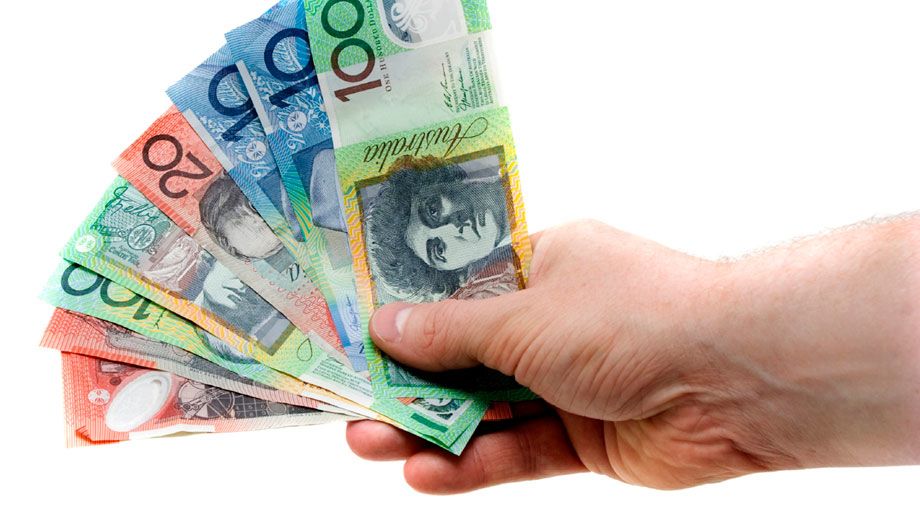The Flying Kangaroo may be bouncing back into the black thanks in part to a global slump in oil prices, but don't expect fuel surcharges to be cut from the cost of Qantas tickets.
The airline says that add-on fuel surcharges account go nowhere near towards covering its multi-billion dollar fuel bill.
"Fuel prices have risen dramatically over the last ten years, it's gone from $40 a barrel to $120 a barrel, so our fuel bill has gone from $2.5 billion to $4.5 billion" Qantas Chief Financial Officer Gareth Evans told Australian Business Traveller in late November, on the sidelines of the delivery of Qantas' new Boeing 737-800 in retro livery.
"While we have from time to time increased the fuel tax across that period, those surcharges don't come close to recouping the fuel price increases that we've seen.".
Oil prices have plummeted some 30% since mid-year, going from around $US107 a barrel in July to a low of $US66 a barrel this week – the lowest per-barrel rate since since May 2010 – and an economist for consulting firm Avitas expects oil prices to continue falling towards the $40-$50 per barrel range.
However, Evans maintained that the recent falls are "too temporary and too short-lived" to see a slash in the surcharge.
"We will need to see a substantial and sustained drop in fuel prices before we consider reducing our fuel surcharges."
Savings by the barrel
Analysts suggest that every dollar-per-barrel fall in oil price lands Qantas a $36 million increase in pre-tax profit.
Qantas' current fuel surcharges add $780 to the cost of a business class return ticket to the US, $890 to the UK and $430 to Asia.
Evans said that lower fuel prices would contribute only "about $20 million" to Qantas pre-tax profit for the July-December 2014 period – an overall number which analysts now expect will exceed $130 million – although it will deliver a larger slice of the profit pie in January-June 2015.
"But if the fuel price stays where it is at the moment then there's a bigger benefit in the second half."
Under current oil pricing, Deutsche Bank suggests Qantas' fuel bill for the first half of next year could call by as much as $470 million.
David Flynn visited Seattle as a guest of Qantas and Boeing.
Follow Australian Business Traveller on Twitter: we're @AusBT


NZ Elite
03 Jul 2014
Total posts 110
I've never understood, why not just operate like any other business? Costs go up, prices go up. Why not just increase the price rather than splitting it out as a "surcharge"?
07 Oct 2012
Total posts 1250
Redemptions on FF tickets and commissons to agents.
NZ Elite
03 Jul 2014
Total posts 110
I don't really buy the argument about FF redemptions. Just increase the number of points required and reduce the debt on your balance sheet: same result.
07 Oct 2012
Total posts 1250
In either case, the customer loses.
Qantas - Qantas Frequent Flyer
17 Aug 2012
Total posts 2199
I honestly would argue that paying a variable YQ is better than paying a variable points deduction, based on the idea that it is much better to know exactly how many points you need because that is the scarce/controlled resource.
Qantas - Qantas Frequent Flyer
25 May 2012
Total posts 580
Airlines buy into fuel price hedging contracts to mitigate any large fluctuations in the fuel prices.
Just because there's a huge decrease or increase in the cost of fuel doesn't automatically translate into lower or higher operating costs.
Qantas - Qantas Frequent Flyer
10 Jan 2013
Total posts 698
Fuel price hedging used to be predominantly used, but is now is much more limited (in both size and duration), so as excuses go it getting to be a very thin one.
Qantas - Qantas Frequent Flyer
11 Oct 2014
Total posts 687
Time for the ACC to become involved, methinks.
Qantas is always happy to 'react' and quickly raise surcharges when oil prices are going up, but like banks, are loathe to reduce them when pricing retreats. Whilst Qantas has been slower of late to increase the surcharge (due to the very real possibility of alienating FrequentFlyers further - and presumably because of the benefits of effective fuel hedging), it is obvious that they can 'live' with the current level.
Surely, even a modest downward revision of this surcharge might go some way towards addressing the current disquiet? Interesting how the increase in the current fuel bill is always trotted out .. but never any mention of the effect of fuel hedging contracts.
I note that QF's North American JV partner (American Airlines) has stopped the process of fuel hedging entirely some time ago. Is QF trying to recover on the back of slugging their most valuable clients (QFF's) yet again?
Qantas - Qantas Frequent Flyer
16 May 2013
Total posts 25
ACCC is about as useful as tits on a bull.
Qantas - Qantas Frequent Flyer
10 Jan 2013
Total posts 698
Like most government and industry watchdogs, they are paper tigers (more for show, than actual protection).
12 Mar 2014
Total posts 43
Last time oil was US$50 a barrel, petrol was approximately $1.00 a Litre.
04 Dec 2013
Total posts 156
I'll think splitting fuel costs out as a separate "surcharge" is fine, when the airline gives me a choice whether I want fuel or not.
Until then, it's a cost of doing business, just like everything else you pay for when you buy a ticket.
Qantas - Qantas Frequent Flyer
10 Jan 2013
Total posts 698
It's really only in point redemptions for economy seats where it causes problems, because now most economy redemptions require a fee charge (due to fuel surcharge) that puts it almost at the same cost as a discounted fare anyway (so you might as well pay that bit extra for the actual fare and get points and status credits on it).
Consequently more demand for PY and J redemptions has occurred (reducing availability) because economy redemptions just aren't worth it anymore (on airlines that charge fees for economy redemptions).
01 Aug 2012
Total posts 30
Question:lLike staff wagesand aircraft depreciation, fuel is part of the total cost of running an airline so why seperate it our from other costs in the first place? Answer: so you can fleece customers.
22 Aug 2014
Total posts 2
I put together a spreadsheet of the surcharges starting in June of 2007 through June 2012 a while ago (I was pissed off at the April 2012 increases). I then charted the fuel charges against the cost of jet fuel in USD and then also factored in the USD to AUD exchange rate. My nuymbers all seem to be correct except the August 2013 surcharge changes I just added seem to indicate that I have the "current" $380 number wrong for Europe as the 2013 change said that was for First class which contradicts the article in April of 2012 on Qantas's website? Maybe someone can shed some light on the correct numbers?
Anyway, you can take a look at the spreadsheet along with a chart that shows cost of jet fuel against the surcharges at:
https://www.dropbox.com/s/gl237089gsa509d/qantas-fuel-charge-chart.xlsx?dl=0
Feel free to give input if I have this wrong - I'm not a stats nut. From an analysis perspective it looks like the lower jet fuel costs they talk about are "softened" by the decreasing value of the AUD?
Hi Guest, join in the discussion on Qantas: no plans to drop fuel surcharge